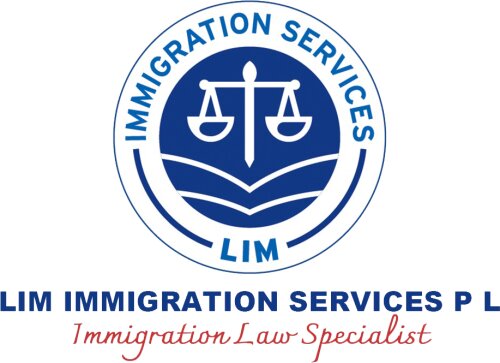Best Restructuring & Insolvency Lawyers in City Hall
Share your needs with us, get contacted by law firms.
Free. Takes 2 min.
List of the best lawyers in City Hall, Singapore
About Restructuring & Insolvency Law in City Hall, Singapore
Restructuring and insolvency law in City Hall, Singapore, covers the processes and legal frameworks for assisting financially distressed businesses and individuals. The precinct of City Hall hosts numerous businesses, multinational corporations, and government agencies, making it a key area for commercial activities. When companies or individuals experience financial difficulties, restructuring and insolvency law provides avenues for them to reorganize their debts, work with creditors, or, if necessary, wind up their affairs in an orderly manner. The goal is to balance the interests of debtors, creditors, and other stakeholders, all within the backdrop of Singapore’s highly developed legal and regulatory system.
Why You May Need a Lawyer
Legal advice in restructuring and insolvency matters can be crucial for various reasons. You may need a lawyer if you:
- Are a company director or business owner facing financial distress and potential insolvency
- Want to understand your responsibilities and potential liabilities as a company officer
- Are an individual who is unable to repay personal debts
- Have received a statutory demand or legal notice from a creditor
- Are a creditor seeking to recover debts from an insolvent company or individual
- Need to negotiate with creditors for more time or revised payment terms
- Require guidance on the proper procedures for restructuring, winding up, or judicial management
- Are concerned about asset protection or possible litigation
- Face cross-border insolvency issues due to international business operations
- Need to ensure compliance with all legal duties and avoid wrongful or fraudulent trading claims
Due to the complex nature of insolvency and restructuring laws, having a lawyer can help you navigate processes efficiently and protect your interests.
Local Laws Overview
Singapore’s restructuring and insolvency laws are primarily governed by the Insolvency, Restructuring and Dissolution Act (IRDA), which came into force in 2020. This legislation consolidates and updates previous legal provisions to provide a modern, comprehensive framework for insolvency and restructuring matters. Key aspects include:
- Corporate Insolvency: Streamlined procedures for liquidation (winding up), judicial management and scheme of arrangement to assist distressed companies.
- Personal Insolvency: Procedures such as bankruptcy applications, Debt Repayment Schemes, and voluntary arrangements for individuals.
- Creditor Protections: Mechanisms for creditors to protect their interests, including the ability to appoint liquidators or file winding up petitions.
- Restructuring Tools: Enhanced efforts to facilitate company rescue, including automatic moratoriums, super priority for rescue financing, and cross border cooperation in insolvency proceedings.
- Duties and Liabilities: Directors and officers must act in good faith and in the best interests of creditors, especially when insolvency is looming. Wrongful or fraudulent trading is an offence.
- Oversight: The Office of the Official Receiver and the courts play central roles in overseeing insolvency and restructuring cases.
City Hall, with its concentration of commercial entities, sees frequent application of these laws as businesses seek to manage debt or address insolvency risks.
Frequently Asked Questions
What is corporate restructuring?
Corporate restructuring refers to legal and financial processes where companies in financial difficulty reorganize their debts and liabilities. This can involve negotiating new terms with creditors, selling assets, or entering formal schemes of arrangement or judicial management to avoid liquidation.
When does bankruptcy apply to individuals?
Bankruptcy applies when an individual is unable to pay debts exceeding a threshold amount, which is currently set at S$15,000. A creditor can file a bankruptcy application, or the debtor may voluntarily apply for bankruptcy protection.
What is judicial management?
Judicial management is a court-supervised process allowing the appointment of a judicial manager to take control of a distressed company. The goal is to rehabilitate the business or, if that is not possible, to achieve a better outcome for creditors than immediate liquidation.
Are directors personally liable for company debts?
Directors are generally not personally liable for company debts. However, they can be held responsible if they are found guilty of wrongful or fraudulent trading, such as incurring debts when the company was already insolvent and unable to repay creditors.
Can I negotiate with creditors during restructuring?
Yes, companies and individuals are encouraged to negotiate with creditors to reach repayment plans or other arrangements. Formal schemes under the IRDA also allow for binding agreements with creditor approval and court sanction.
What does a moratorium mean in insolvency proceedings?
A moratorium is a temporary freeze on legal action by creditors, giving the insolvent party breathing space to propose or implement a restructuring plan without the threat of litigation or asset seizure.
How does liquidation differ from restructuring?
Liquidation is the process of winding up a company and distributing its assets to creditors before dissolving the entity. Restructuring, by contrast, seeks to avoid liquidation by reorganizing debts and operations to restore solvency.
What happens to employees in an insolvency or restructuring?
Employees’ claims-such as unpaid wages and salaries-usually receive preferential treatment in insolvency proceedings. In a successful restructuring, jobs may be preserved, but if liquidation proceeds, employees may lose their positions and will be paid according to statutory priorities.
How are cross-border insolvency cases handled?
Singapore has adopted the UNCITRAL Model Law on Cross-Border Insolvency, enabling courts to co-operate with foreign jurisdictions and recognize foreign insolvency proceedings, which is crucial for companies with international operations.
Can individuals avoid bankruptcy in Singapore?
Yes, individuals may avoid formal bankruptcy through voluntary arrangements or by using the Debt Repayment Scheme if they meet eligibility criteria. These alternatives allow debtors to repay creditors over time without the stigma and restrictions of bankruptcy.
Additional Resources
If you need more information or support regarding restructuring and insolvency in City Hall, Singapore, consider these helpful resources:
- Ministry of Law Singapore - Insolvency Office
- Singapore Academy of Law - Legal education and practitioner directories
- Singapore Association of Insolvency Practitioners (SAIC)
- Law Society of Singapore - Find a lawyer specializing in restructuring and insolvency
- Insolvency and Public Trustee’s Office (IPTO)
- Community Justice Centre - Free legal clinics and support for individuals
Next Steps
If you believe you need legal assistance with restructuring or insolvency matters in City Hall, Singapore, follow these steps:
- Assess your financial situation and gather relevant documents such as financial statements, creditor correspondence, and legal notices.
- Identify your needs - whether you are seeking debt restructuring, protection from creditors, or guidance in winding up a company.
- Consult a qualified restructuring and insolvency lawyer. You can contact the Law Society of Singapore or search directories for lawyers specializing in this field.
- Prepare a list of questions and concerns to discuss during your initial consultation.
- Act promptly, as delays in addressing financial distress can limit your options and expose you to greater risks.
- Follow your lawyer’s advice on the best way forward, whether it involves negotiation, court processes, or formal insolvency procedures.
Getting early legal advice can greatly increase the likelihood of reaching a favorable outcome and minimizing losses for all parties involved.
Lawzana helps you find the best lawyers and law firms in City Hall through a curated and pre-screened list of qualified legal professionals. Our platform offers rankings and detailed profiles of attorneys and law firms, allowing you to compare based on practice areas, including Restructuring & Insolvency, experience, and client feedback.
Each profile includes a description of the firm's areas of practice, client reviews, team members and partners, year of establishment, spoken languages, office locations, contact information, social media presence, and any published articles or resources. Most firms on our platform speak English and are experienced in both local and international legal matters.
Get a quote from top-rated law firms in City Hall, Singapore — quickly, securely, and without unnecessary hassle.
Disclaimer:
The information provided on this page is for general informational purposes only and does not constitute legal advice. While we strive to ensure the accuracy and relevance of the content, legal information may change over time, and interpretations of the law can vary. You should always consult with a qualified legal professional for advice specific to your situation.
We disclaim all liability for actions taken or not taken based on the content of this page. If you believe any information is incorrect or outdated, please contact us, and we will review and update it where appropriate.














